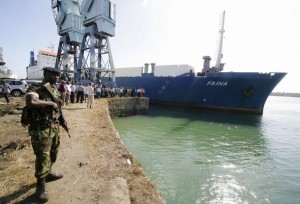Developing Alternatives to Piracy, the African Maritime Growth Initiative
An interesting Foreign Affairs article: “Swapping Pirates for Commerce” , released on 4 October argues for a more holistic approach to African maritime security, with a drive for port development and job creation through an African Maritime Growth Initiative.
Providing viable economic alternatives to piracy and increasing both land-based and maritime governance are some of the long-term strategies in piracy reduction and prevention that have historical credence.
The development of African ports is important for security and economic growth and should invite investment and increase efficiency but increasing African maritime commerce as a whole would require some significant changes in international and regional trade flows that are more difficult to engender. A focus on port infrastructure also overlooks the crucial development and protection of the fisheries sector and the necessary creation of maritime control through law and a capacity to police it.
Whilst there may be some with political motivations, piracy off the coast of Somalia is primarily an economic activity. Increasing the risks of conducting that illegal activity whilst increasing the incentives to undertake legitimate activities are a means to reduce and potentially eliminate the piracy problem. Currently we are achieving neither.
Sending naval assets to the East African region is a short-term and only partially effective solution to the maritime security problem. Western governments could play a larger part in African maritime development through knowledge transfers and economic support for port infrastructure and maritime control construction. There is a widespread agreement that only a long-term, land-based strategy can eliminate piracy, perhaps the African Maritime Growth Initiative could become an important element of that strategy.


